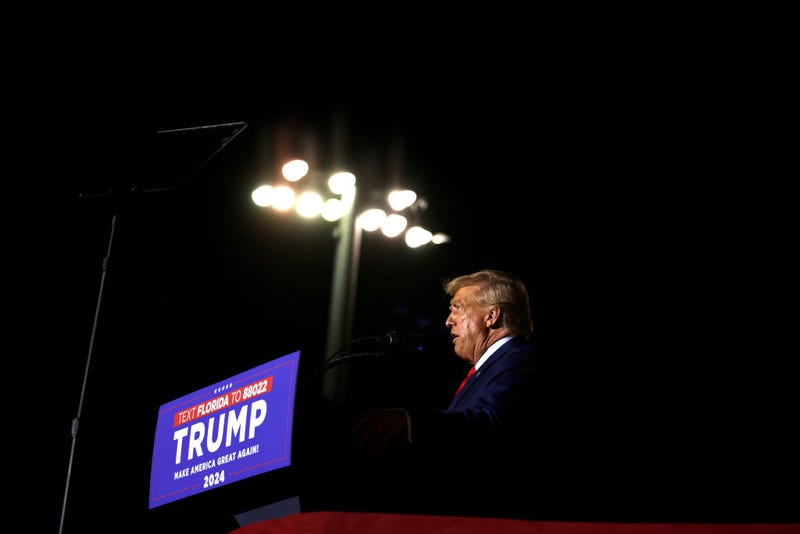
The Minnesota Supreme Court has ruled exceedingly quick in rejecting a push to bar former President Donald Trump from appearing on the 2024 election ballot in the state.
The bipartisan group that filed the petition earlier this fall said Trump should not be allowed on the ballot in Minnesota because he violated Section 3 of the 14th Amendment.
That Amendment is the one known as the insurrection clause, and it bars former office holders who has engaged in insurrection or rebellion from ever holding office again.
Attorney argued that's exactly what Trump did on January 6th, 2021. The attorney representing former President Trump argued the events of that day didn't qualify or rise to the level of an insurrection.
Hamline Political Science Professor David Schultz expected this, after hearing Chief Justice Natalie Hudson's comment at the end or oral arguments last week.
"And this is really where Justice Hudson last week, really tipped her hand for the court," explained Schultz. "She said at one point during the oral arguments, asking the attorneys, 'even if we had the authority to do this, should we?' To me, once she said that, I knew it was all over."
The court did dodge the central question of the lawsuit around the 2021 attack on the U.S. Capitol disqualifying him from the presidency, by ruling that state law allows parties to put whomever they want on the primary ballot.
"It's either a measure for Congress to address in terms of how to interpret the 14th Amendment and whether Trump should appear on the ballot, or conversely, courts might simply say that at the end of the day, it's up to the American public to decide whether he should be President of the United States and not us," Schultz told WCCO Radio.
“There is no state statute that prohibits a major political party from placing on the presidential nomination primary ballot, or sending delegates to the national convention supporting, a candidate who is ineligible to hold office,” Chief Justice Natalie Hudson ruled.
The court left open the possibility that plaintiffs could try again to knock Trump off the general election ballot in November. The Minnesota challenge was filed by the liberal group Free Speech For People, which said it will continue its campaign to end Trump’s presidential bid.
“We are disappointed by the court’s decision,” said the group’s legal director Ron Fein, who argued before the court at its Nov. 2 hearing on the case. “However, the Minnesota Supreme Court explicitly recognized that the question of Donald Trump’s disqualification for engaging in insurrection against the U.S. Constitution may be resolved at a later stage. The decision isn’t binding on any court outside Minnesota and we continue our current and planned legal actions in other states to enforce Section 3 of the Fourteenth Amendment against Donald Trump.”
"It didn't seem like the case was that strong this early," says WCCO Political Analyst Blois Olson. "They made this motion with the idea that Trump would be on the ballot. But he's not on the ballot yet, they haven't submitted his name for the ballot yet. Can't come off the ballot until he's on the ballot. But I think the more states that dismiss it, the less it'll be an issue in 2024."
The ruling is the first from a series of lawsuits filed by Free Speech For People and a second liberal group that are seeking to use Section 3 to end the candidacy of the frontrunner in the Republican presidential primary.
On his social media platform, Truth Social, Trump said: “Ridiculous 14th Amendment lawsuit just thrown out by Minnesota Supreme Court.” He added, “Congratulations to all who fought this HOAX!”
5 justices heard oral arguments. 2 others recused themselves.
There are heard in other states, including Colorado, where a state judge has scheduled closing arguments for next week.
Many legal experts expect the issue to eventually reach the U.S. Supreme Court, which has never ruled on Section 3.
Secretaries of State have generally said they don’t have the power to determine Trump should not be on the ballot and have sought guidance from courts. Minnesota’s Democratic Secretary of State, Steve Simon, said in an interview he was happy to have some clarity.
“I am grateful that the Supreme Court acted quickly in providing Minnesotans with certainty about who will be eligible to appear on the ballot for the presidential nominating primary,” Simon said.
The Associated Press contributed to this story.
